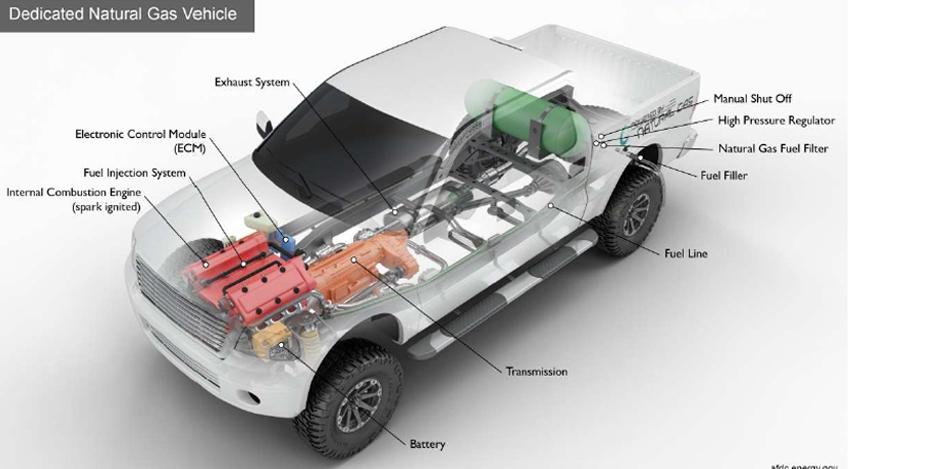About CNG
What is Compressed Natural Gas (CNG)?
Compressed Natural Gas or CNG is a natural gas under pressure which remains clear, odourless, and non-corrosive and is used as a cheaper, greener and more efficient fuel alternative to the traditional petrol and diesel for vehicles.
CNG is comprised mostly of methane gas which, like petrol and diesel, produces engine power when mixed with air and fed into engine’s combustion chamber of your car. CNG is compressed so that enough fuel can be stored in your vehicle to extend driving range.
Petrol and diesel vehicles can easily be converted to use CNG.
How does CNG work?
CNG vehicles work much like Petrol vehicles with spark ignited internal combustion engine. The engine functions the same way as a Petrol engine. The fuel-air mixture is compressed and ignited by a spark plug. CNG is stored in a cylinder at the back of the vehicle. A CNG fuel system transfers CNG from the cylinder to engine where its pressure is reduced to a level compatible with the engine fuel injection system, through which the fuel is introduced into the intake manifold or combustion chamber.

Why is CNG better than Petrol and Diesel?
- Compressed natural gas is a clean-burning fuel. It is actually the cleanest of all fossil fuels. Since natural gas is composed mainly of methane, burning it produces carbon dioxide and water vapour. These are the same compounds we exhale when we breathe. Meanwhile, petroleum produces higher carbon emissions, nitrogen oxides and sulphur dioxide. Burning petrol and diesel also produces ash particulates that worsen pollution.
- Combustion of natural gas releases very small amounts of these compounds. For instance, carbon monoxide emission is reduced significantly in CNG powered cars compared to petrol-powered vehicles. CNG also produces lesser hydrocarbons than petrol. And although natural gas also produces greenhouse gases, it is considerably reduced compared to petrol or diesel. This helps reduce the harmful effects of greenhouse gases to the environment particularly through global warming.
- Since CNG is a clean burning fuel, combusting it leaves little or no residue compared to petrol or diesel. Thus, the damage to the pipes and tubes of the vehicle’s engine is greatly reduced. There is also less particulate matter that can contaminate the motor oil. This results to longer periods in between maintenance procedures such as tuneups and oil changes. Consequently, owners of CNG-powered cars enjoy bigger savings on maintenance costs.
- CNG also has a high ignition temperature of about 1163 degrees Fahrenheit and a flammability rating of approximately 5 to 15% gas in air. This reduces the risk of fire if and when a leak happens. CNG is also lighter than air and will simply dissipate into the atmosphere in case of leak. Meanwhile, petrol or diesel will pool in the ground when there is a leak which results to a very dangerous fire hazard. Lastly, CNG is a non-toxic fuel that does not pose any danger of contamination to ground water.




